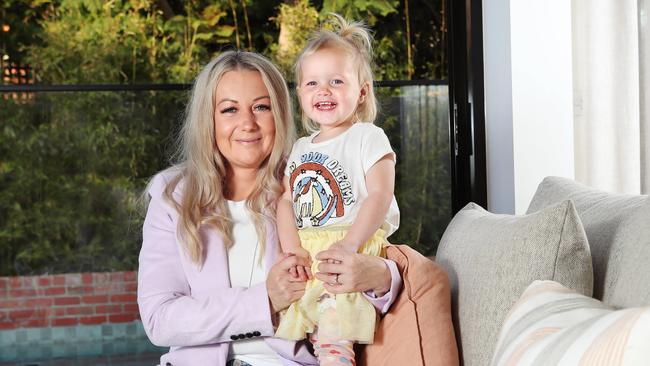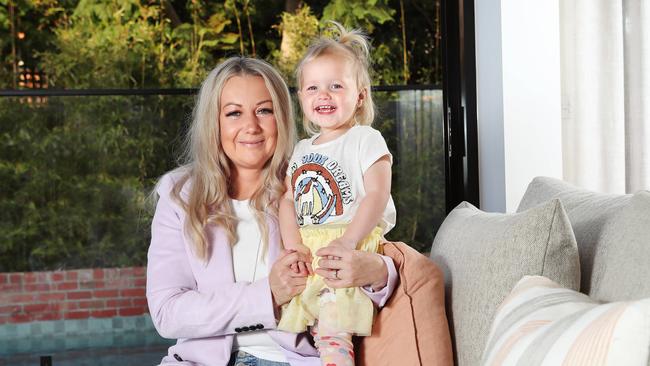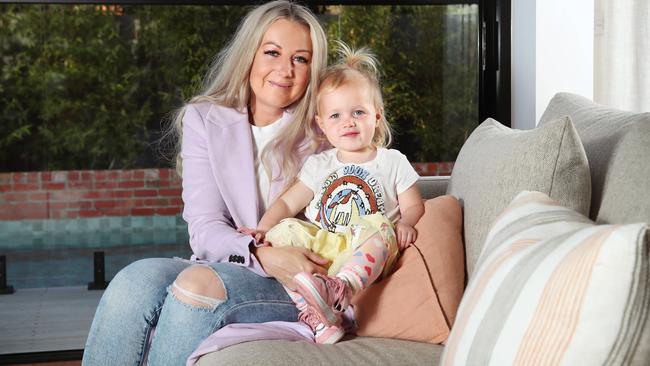Discriminatory rule enables life insurance providers to put ban on payouts over genetic testing
A law that allows life insurers to discriminate against people who undergo genetic tests is under review.

National
Don't miss out on the headlines from National. Followed categories will be added to My News.
Exclusive: A controversial moratorium that allows life insurance companies to slug people who have genetic tests higher premiums or deny them cover altogether is under review by the government.
The move comes after News Corp reported a new study by Monash University found one in three people who have a genetic test are being denied life insurance, charged higher premiums or have conditions placed on their cover.
“The Government is committed to making access to insurance more affordable,” a government spokesman said.
Doctors have revealed the unfair rules are deterring people from having genetic tests that will reveal if they have genes that predispose them to cancers or heath conditions they could take action to prevent.
It also means we lag the rest of the world. People who have genetic tests and who live in the UK, Europe and Canada do not face the same discrimination.
“It is important that consumers do not feel disincentivised to undertake genetic tests where it is in their interest to do so and the Government encourages people to undertake genetic tests in those situations,” a government spokesperson said.
“Where clinically appropriate, consumers can already access items for genetic testing through the Medicare Benefits Schedule. Additionally, the Australian Government is investing $500 million in genomic research through the Genomics Health Futures Mission,” the spokesperson said.
The life insurance industry has already committed to a ban on genetic tests for cover below $500,000 but experts claim the financial limits are too low and do not apply overseas.
“The government will examine the analysis from Monash University, which considers the effectiveness of this moratorium. This final report will be released in June,” the government spokesperson said.
MUM SLUGGED MORE AND BANNED FROM PAYOUT
Nicole Shepherd is paying twice as much as others for life insurance and is banned from a payout if she develops any kind of cancer — all because of a genetic test.
She is one of thousands of Australians being penalised for proactively being screened to determine if they need action like surgery that could save their lives.
A new government-funded study, published in the prestigious journal Nature, found one in three Australians who undertake genetic tests are denied life insurance, charged higher premiums or have conditions placed on their cover.
If they lived in the UK, Canada or Europe they wouldn’t be in this situation.
Research author Dr Jane Tiller, of Monash University, said while other countries banned insurers from accessing genetic test results, Australia’s Disability Discrimination Act (DDA) had a specific exemption that allowed insurers to show prejudice.

“Of those who may have tried to apply for life insurance products, over a third reported difficulties, including insurers rejecting applications; financial advisers telling respondents that their applications would be rejected; and insurers placing conditions on insurance policies or charging higher premiums,” the study said.
As more and more medical advances depend on genetic testing, experts are calling on the federal government to amend the DDA to ban life insurers from being able to access genetic test results.
And to enforce the new ban, they want the government to install an appeal process, run by the Human Rights Commission.
Leading clinical geneticist at the Murdoch Children’s Research Institute Professor Martin Delatycki said it was “unconscionable and unethical in a civilised society that we have the ability to help people and prevent illness and death, and people are not able to take advantage of it”.


“People might die because they’re avoiding intervention, and genetic testing for something that’s preventable,” she said.
The Human Genetics Society of Australasia said insurers should not be able to require disclosure of genetic testing undertaken as part of a research project.
“The HGSA urges the Australian Federal Government to take a more active role in regulating the use of genetic information in insurance, for example, to ensure that any discrimination that does occur adheres to the relevant provisions of the Disability Discrimination Act,” the society said in its position statement.
Chief executive of hereditary cancer charity Pink Hope Sarah Powell also wants the DDA amended “so people are not discouraged from genetic testing and can access the same levels of insurance as others in the general population.”
A parliamentary inquiry five years ago called for Australia’s Financial Services Council to prohibit life insurers from using the outcomes of predictive genetic tests, as is the case in the UK.
The insurance industry imposed a moratorium in 2019 prohibiting insurers from asking for or using genetic results.
However, instead of matching the UK with no monetary cap on insurance cover, Australia’s insurers set a limit of $500,000 for death and total permanent disability cover.
“It’s not good enough firstly because the limit is a relatively low one and so for many people is completely inadequate to meet their needs,” Professor Delatycki said.

“But secondly, the insurers can stop the moratorium at any time, they’re in charge of it, (so) it should be the government taking the lead.”
Breast Cancer Network Australia chief executive Kirsten Pilatti said “fears about insurance discrimination” may prevent people from making “informed decisions about their breast cancer risk, leading to poorer health outcomes.”
Director of the McCabe Centre for Law and Cancer Hayley Jones said Australia “lagged behind … countries in Europe as well as Canada and the United Kingdom (which) have already banned or restricted life insurance companies from using genetic test results”.
Ms Shepherd, who at 19 discovered through a genetic test she was predisposed to Lynch Syndrome, pays $1400 a year for $1.7 million worth of life insurance cover.
That is despite having her uterus removed and undergoing twice yearly colonoscopies and mammograms that reduce her risk of cancer.
“I’m doing the right thing by screening and undergoing radical surgery to prevent my risk,” the now 41-year-old mother of two and small business owner, who undertook the original genetic test because her father had bowel cancer, said.
“People who don’t do genetic testing cost the insurer more because they get a huge payout for their conditions that they didn’t even know that they had.”
Ms Shepherd’s cover goes as far as excluding her from a benefit payout if she gets any type of cancer — not just the cancers her genes place her at greater risk of.
“They put a 100 per cent premium on top of my premium because of my testing and exclusions. And they’ve also excluded me from every type of cancer, not just the cancer that is linked to my genetic condition,” the mother-of-two said.
“It was a pretty traumatic experience.”
NO ACTION LEAVES AUSSIES WORSE OFF
The compliance body which polices the insurance industry has been exposed as a toothless tiger — only ever sanctioning one insurer.
The Life Code Compliance Committee (LCCC), which is meant to investigate breaches of the insurance industry’s code of practice, investigated just two of the 747 complaints it received from the public in 2018-19 a study has found.
In its entire existence, it has only ever sanctioned one insurer and has had no meaningful financial penalties to impose.
Its powers have been limited to issuing formal warnings or publicly naming an insurer as non-compliant with the Code.
From July, it’s remit will expand to include monitoring compliance on genetic testing rules.
And it will for the first time be able to impose financial penalties in the form of a community benefit payment paid to a registered charity.
In 2018-19, in its own annual report, the committee noted it “has been left with the impression that a number of subscribers were not taking their Code compliance obligations and the Code’s true purpose seriously”.

An academic review by Monash University academics found the LCCC has no real authority, “it lacked resources to investigate all of the breaches notified to it”, and it can’t even boot offending insurers out of the Financial Services Council that set it up.
“I’m hoping we will get a government ban on insurers using genetic tests and the legislation can be overseen by the government,” Monash University researcher Dr Jane Tiller said.
The Chair of the LCCC Jan McClelland said: “the LCCC carefully considers every concern raised with it. Last financial year the LCCC completed 216 investigations of alleged breaches of the Code and published 41 determinations.”
Life insurers did take the LCCC seriously, she said, “which is why they have responded appropriately when the committee has raised issues with them – which in turn has meant sanctions have not had to be used, apart from one occasion.”
A spokesperson for the Financial Services Council, representing insurers, said “if a consumer is concerned there may be a breach of the Code we encourage them to contact the LCCC.”
More Coverage
Originally published as Discriminatory rule enables life insurance providers to put ban on payouts over genetic testing





